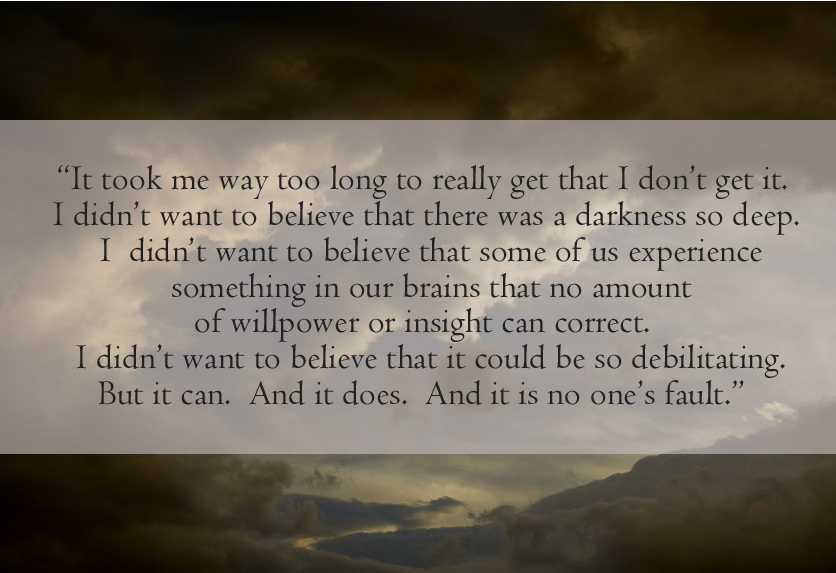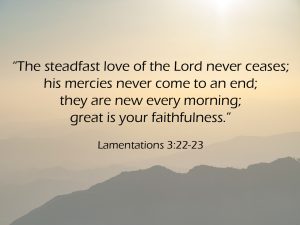Depression – I Get It and I Don’t

I used to think that all depression was the same. There were days and sometimes weeks when I might awake to a sense of gloom. It might include some sadness. It would include feeling less energetic. I would be aware of having less anticipation or hope. I might find myself being more irritable than normal, blaming others for things that I normally might not even see. But I could function. I kept eating normally, sleeping normally, and finding pleasure in the same things I normally enjoy. If you asked me how I was doing, I might say “I’m a little depressed.”
But a few times in my life, it has been darker and more controlling than that. I couldn’t sleep well or wanted to sleep all the time. I didn’t care about food (and that is highly unusual!) The future held only despair. Life seemed purposeless. I was sad, but it was worse than sadness. I would find myself wanting heaven or sometimes doubting that it even existed. But there was still some light…
Over the years, as I have built some special friendships, I have concluded that while I sometimes feel depressed, I don’t know it as they do, the deep, deep darkness of a major depression. I have experienced something on the depression spectrum. But I have brave friends, who courageously face at times a looming darkness that is compelling and controlling. I get it. But I don’t.
It took me way too long to really get that I don’t get it. I didn’t want to believe that there was a darkness so deep. I didn’t want to believe that some of us experience something in our brains that no amount of willpower or insight can correct. I didn’t want to believe that it could be so debilitating.
But it can. And it does. And it is no one’s fault.
Yes, difficult circumstances and bad choices can put us in darker places. But some, perhaps many experience something completely separate from that. Depression just hits. It overwhelms. It controls.
In the old days, sadly and arrogantly, I think I just wanted those friends to try harder. I wanted life to be more controllable, completely controllable. And now I know it’s not that simple. People don’t choose to be that hopeless.
Yesterday, I was in a Bible study about Jesus healing the leper in Mark 1. The Greek word that describes His response literally means “moved in his bowels.” It paints the picture of being deeply stirred, viscerally responding to this tragic situation, this tragic disease that ostracizes its victims. People stay away from lepers out of fear and self-protection. But Jesus allows this leper to touch Him and ask for healing.
But that Greek word gets translated two ways. Often it is translated “moved with compassion.” Jesus feels deeply for the condition of this man. That makes sense. We all understand and would expect Jesus to be tender-hearted.
But the word can also be translated, “moved with anger.” That too would be a strong response that at first glance doesn’t make sense. But the more I pondered and read, the more I resonated with this translation as well.
Jesus was not angry at the leper, but at the leprosy. It was a disease that dramatically impacted life. It led to isolation and sadness and despair. No one chose to be a leper. And lepers couldn’t simply choose to be better.
I want to be a man who is both moved by compassion and moved to anger at the disease of depression. It robs my friends from life. It isolates them and diminishes their hope and enjoyment, their ability to love and to be loved. I hurt for a disease that just is. And I hate a world so broken.

Palmer Trice is an ordained Presbyterian minister. He is married to Lynne, has three children and has been in Charlotte since 1979. In his spare time, Palmer enjoys golf, tennis, walking and reading.




